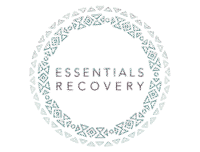Recovering from substance use disorder is a deeply personal journey, and it often begins with a vital first step—assessment. Before anyone can receive effective treatment, it’s essential to understand the unique nature of their addiction, mental health, and personal circumstances. That’s where professional assessment services come into play. These services provide a foundation for tailored treatment plans, help identify co-occurring disorders, and pave the way for long-term recovery success.
The Purpose of Assessment in Recovery
Addiction is a complex condition that varies greatly from person to person. What works for one individual may not be effective for another. An assessment helps clarify the severity of the addiction, the substances being used, and the potential presence of underlying issues. The goal is not to judge or label but to gather important information that guides treatment professionals in creating a plan that meets each individual’s needs.
During an assessment, clinicians explore many aspects of a person’s life. They look at physical health, mental well-being, family dynamics, social history, and behavioral patterns. By gathering this information, a clearer picture emerges—one that can lead to a more effective, personalized recovery journey.
What to Expect During a Substance Abuse Assessment
A substance abuse assessment is often the first step once someone seeks help. It typically consists of interviews, questionnaires, and diagnostic tools administered by trained professionals. Here’s what someone can usually expect:
- Clinical Interviews: These help professionals gather information about the person’s drug or alcohol use, history of relapse, medical history, and personal challenges.
- Standardized Screening Tools: Questionnaires like the Addiction Severity Index (ASI) or DSM-5 criteria for substance use disorder are used to provide a structured evaluation.
- Mental Health Screening: Because co-occurring disorders are common, clinicians also screen for conditions like depression, anxiety, PTSD, or bipolar disorder.
- Physical Health Assessment: Basic medical evaluations may be conducted to identify any complications from prolonged substance use.
The information gathered is used to determine the level of care required—whether it’s outpatient, intensive outpatient, residential, or detox.
Types of Assessment Services
There are various types of assessments available, depending on the situation and level of need. Each plays a distinct role in supporting recovery.
Comprehensive Substance Abuse Evaluation
This full-scale assessment offers a deep dive into an individual’s substance use patterns, co-occurring mental health issues, and social environment. It is often required before entering a treatment program and can be used in legal or employment-related cases as well.
Brief Screening Assessments
These are shorter evaluations, often used as a first step to determine whether a full assessment is necessary. They can be administered by general healthcare providers, counselors, or community support organizations.
Dual Diagnosis Assessment
Many people struggling with addiction also face mental health challenges. A dual diagnosis assessment looks for underlying psychological conditions that might be influencing or complicating substance use. Treating both conditions simultaneously improves the likelihood of long-term recovery.
Medical and Psychiatric Evaluations
Medical assessments ensure a person’s body is physically capable of undergoing detox or other treatments. Psychiatric evaluations explore mental health conditions that may require medication or therapy during the recovery process.
Why Assessment Is So Important in Personalized Treatment
A one-size-fits-all approach rarely works in recovery. Each person has different needs, experiences, and goals. Assessment services allow treatment professionals to tailor care to the individual.
For example, someone with a long history of opioid use and depression may require a different strategy than someone with a short-term alcohol dependency and strong social support. A comprehensive assessment allows treatment centers to choose the right therapies, medications, and support services to increase the chances of successful outcomes.
Assessments also help prevent potential problems. If a person has a medical condition or psychological disorder that could interfere with treatment, early identification allows for timely intervention.
The Role of Family in Assessment
Family involvement can provide valuable insight during the assessment process. Loved ones often observe behaviors or patterns that the individual might overlook or be unaware of. Including family members in the evaluation can help professionals form a clearer, more complete picture of the situation.
Additionally, involving the family helps prepare them to support their loved one during treatment and recovery. It builds a support system and promotes open communication—a key factor in maintaining long-term sobriety.
Reassessment and Continuous Evaluation
Assessment isn’t just a one-time event. Recovery is a dynamic process, and people’s needs often change over time. Ongoing assessments help adjust treatment plans as progress is made or new challenges arise.
For example, someone in an outpatient program may begin to struggle with stress or cravings. A reassessment might reveal that more intensive care is needed. Likewise, if someone excels in a higher level of care, reassessment could support a safe transition to less intensive services.
Regular check-ins also help keep recovery goals aligned with real-life situations. By continuing to evaluate and adapt, individuals are more likely to stay on track and build lasting change.
Where to Access Assessment Services
Assessment services are widely available in many communities. Some of the most common places to find them include:
- Addiction Treatment Centers: Most centers offer assessments as part of the intake process.
- Hospitals and Clinics: Many healthcare providers offer substance abuse assessments through behavioral health departments.
- Community Mental Health Centers: These centers provide free or low-cost evaluations and are a great resource for those with limited financial means.
- Private Therapists and Counselors: Licensed professionals in private practice can also conduct assessments and refer clients to appropriate services.
- Employee Assistance Programs (EAPs): Some employers offer confidential assessments and referrals through workplace programs.
- Court-Ordered Assessments: Legal systems sometimes require assessments as part of criminal justice proceedings or child custody cases.
Knowing where to turn can make a significant difference in getting help sooner rather than later.
Overcoming the Fear of Assessment
It’s normal to feel nervous or anxious about undergoing an assessment. People may fear being judged or worry about what the results might reveal. However, it’s important to understand that assessments are tools—not tests. There’s no “failing” an assessment.
The purpose is to help, not to shame. Professionals who conduct assessments are trained to be empathetic and nonjudgmental. They work to create a safe environment where individuals feel comfortable sharing their stories honestly. The more open someone can be, the more effective the assessment and subsequent treatment will be.
Moving Forward After Assessment
Once the assessment is complete, the real work of recovery begins. Using the results, treatment professionals can help guide individuals into the most appropriate program. Whether it’s inpatient treatment, outpatient therapy, or ongoing counseling, a solid treatment plan starts with a thorough understanding of the person’s needs.
It’s also helpful to view the assessment as a moment of empowerment. Taking that first step is a sign of courage and determination. It’s an acknowledgment that change is possible—and that support is available.
Final Thoughts
Assessment services are a cornerstone of successful addiction recovery. They provide critical insights that allow for personalized care, uncover co-occurring conditions, and support long-term planning. By embracing the process, individuals open the door to meaningful healing and transformation.
No matter where someone is on their journey, understanding their needs through professional assessment can help them build a recovery path rooted in clarity, support, and hope. Call us today at 855-509-1697.



